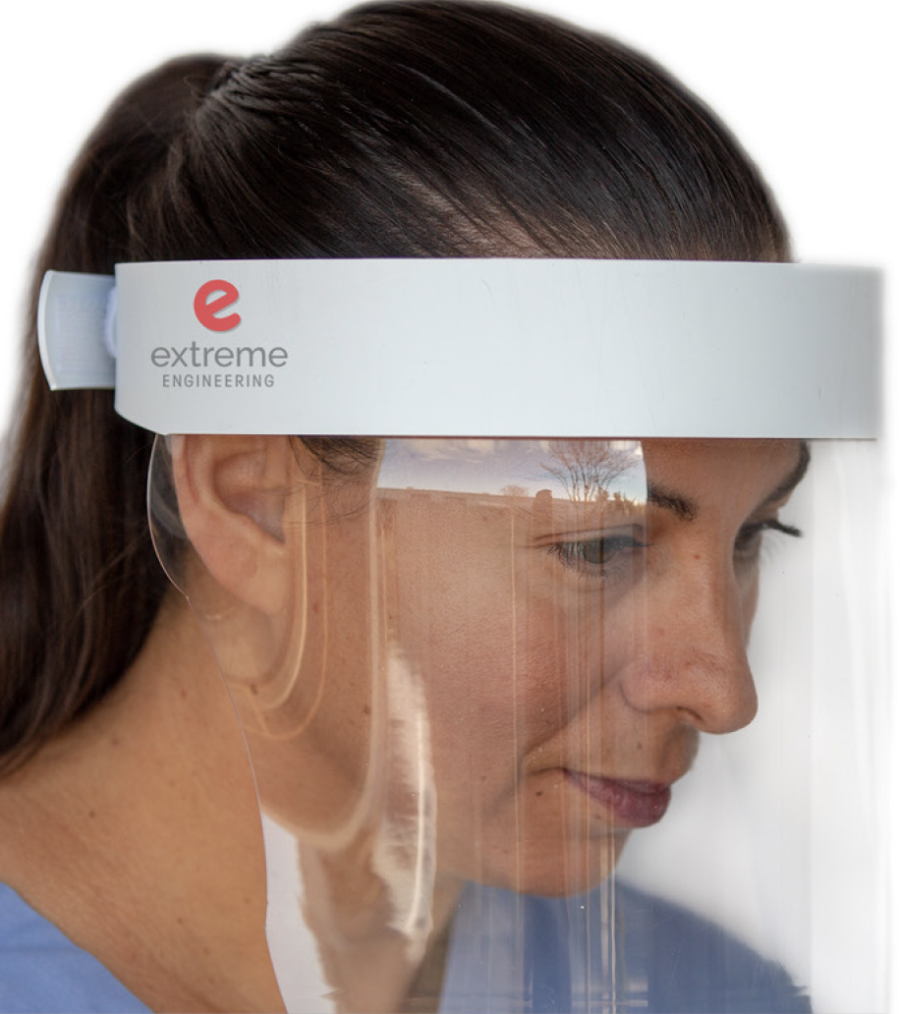Do-It-Yourself: Manufacturers on Producing Emergency Supplies

Despite a halt to normal business because of “stay at home” orders, the manufacturers and suppliers of the attractions industry have recalibrated their production lines to equip first responders with the safety gear and infection control measures they need during a global shortage of supplies. It's keeping communities safer, employees employed, and everyone's resourcefulness working at full capacity.
From special effects to hand sanitizer
Known for manufacturing fluids that create spellbinding fog, snow, and other theatrical effects, one Tennessee-based company is now bringing back a product that had pulled off a disappearing act: hand sanitizer. Froggy's Fog was initially tipped off to the shortage when sales of glycerin, an ingredient the company extensively used and is also a primary ingredient in hand sanitizer, skyrocketed. It wasn't long before the company concluded it could bulk produce hand sanitizer as well.
"We had a bottling line, most of the ingredients, and the slowdown in production of our normal fluids," explains Scott Karan, director of marketing at Froggy’s Fog.
What the company didn’t have enough of was alcohol—another key ingredient for hand sanitizer. Local distillers, who also wanted to produce hand sanitizer, had alcohol in abundance, but not glycerin. So the company secured win-win arrangements to supply each other with their respective missing ingredients.
"We looked at it this way. This isn’t a time to be selfish or greedy. The more hand sanitizer we could get out, no matter who was selling it, was a good thing for all of us. It would bring us back to ‘normal’ a lot quicker," Karan notes.
The new product line isn’t without its challenges. Getting certified to bottle with alcohol is one of them, with a host of different requirements and regulations and shipping certifications. Employees have been working hard to fulfill thousands of orders a day—where previously they fulfilled a small percentage of that.
But the company might also have a permanent addition to its product line. And, as Karan points out, "We have been able to hire over 30 people that were laid off or furloughed, helped our local community by donating sanitizer, and kept our staff employed. We became essential."
From "the business of fun" to face shields
Having spent over two decades designing rides, climbing walls, and other adventures for thrill-seekers, Extreme Engineering has switched gears to fulfill the urgent need for personal protective equipment. In key ways, the adaption has been a natural one for a company whose people are inherent problem solvers.
"We are wired to dig into the details of an issue, provide a solution, and quickly execute. I’m incredibly fortunate to have a team of brilliant thinkers who are willing to tackle problems from every market across the globe," observes Phil Wilson, executive vice president at Extreme Engineering.
The problem they're tackling now is universal: a shortage of safety gear for first responders and others on the front lines of combating the novel coronavirus. In the immediate term, Extreme Engineering is producing face shields, increasing in demand as recognition grows that face masks may not offer adequate protection.
Importantly, this is a measure of protection that doesn't require FDA approval and the associated red tape. "That can take months or even years. Focus on the easy, immediate needs. We have industry friends who are making throw-away isolation gowns and also personal protection shields, like us, to support their local first responders," Wilson advises.
He adds, "This is what most of us ‘non-medical suppliers’ are producing.”
Wilson acknowledges that not every company can switch to making emergency supplies. But there are still opportunities to provide a service—and his suggestions could be the basis for a number of charitable campaigns.
He adds: "Many of our essential workers may not need personal protection equipment, but just emotional support. Deliver meals to hospital workers. Raise money to support research. Provide care packages to kids who no longer will have school for the rest of the year. There are so many ways to help during this situation."
One way to help is to donate emergency supplies. Extreme Engineering and Froggy’s Fog are both offering free, standard ground shipping in the continental United States for donations. Proceeds earned by Extreme Engineering are going to UNICEF, and Froggy’s Fog has donated cases of hand sanitizer to first response agencies, sanitation departments, utility workers, nursing homes, and assisted living facilities throughout their county and neighboring counties.
Resources for getting started
Companies looking to understand where supplies are needed and how they might contribute them should look to their local community first. “Everyone knows a cop, a firefighter, a nurse, or doctor. They are incredible resources to give guidance on how to help,” Wilson recommends.
He adds that the Centers for Disease Control, Red Cross, governors’ offices, state disaster agencies, local fire departments and hospitals are also potential resources.
The Alliance for American Manufacturing has published an extensive list of resources online, aggregated from various congressional members belonging to the House Manufacturing Caucus.
The list includes the Thomas COVID-19 Resource Hub, an invaluable tool for researching who needs supplies, who has certain ingredients for needed supplies, certification information, and more.
